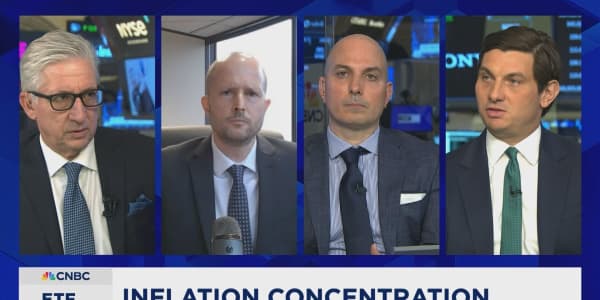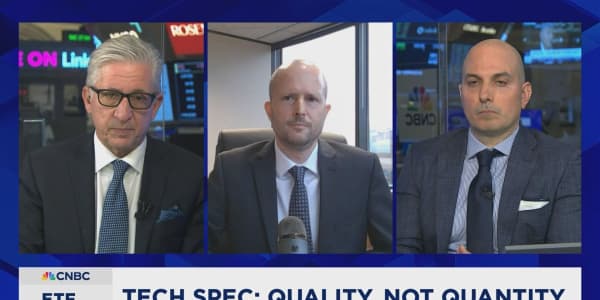
With U.S. Treasurys hitting record highs amid the market sell-off, investors have been flocking into bond ETFs, with bond funds seeing record amounts of money flows last week.
Money-market and government bond funds in particular saw record inflows, while investment-grade bond funds had record outflows. High-yield bond funds had the second-largest outflows after investment-grade funds.
But a pricing discrepancy is appearing in one bond ETF in particular that could leave investors puzzled.
Last Thursday, for example, the iShares iBoxx $ Investment Grade Corporate Bond ETF (LQD) closed 4.5% below its fair value. The fair value of an ETF is a reference point for buyers and sellers of a fund. The average premium and discount for LQD in particular is usually about 6 basis points.
In this case, the LQD closed well below its fair price.
This means that LQD was trading at a sizable discount, and Andrew McOrmond, managing director of ETF trading solutions at WallachBeth Capital, told CNBC's "ETF Edge" on Monday that current prices do not "reflect the depth of liquidity at that bond level."
Last Wednesday, LQD traded down more than 3% to a market cap of roughly $28.2 billion, below its total net asset value of nearly $29.7 billion.
"An ETF's liquidity is really a function of the underlying liquidity of the asset class," he said. "Although there [were] bids seen on the market, in the bond market [and] in the corporates, they weren't simply able to be actionable or able to have depth. So, market makers were not able to accurately hedge."
These inflows may have resulted from the structure of ETFs themselves versus alternatives like mutual funds, which are more rigid with pricing, McOrmond said.
"A mutual fund you cannot get in and out of during the day, and these ETFs held up by giving people the right to sell if they wanted to," he said. "People that sold earlier in the day in those bonds, in those bond funds, just happened to time it correctly."
McOrmond stressed that the current chaotic market environment has made accurate pricing difficult, but he expects that uncertainty in the market to be close to reaching its peak. After the volatility shakes out, markets should be more accurately priced, he said.




